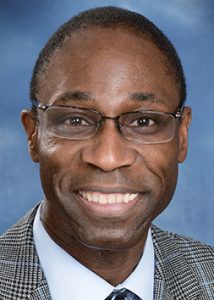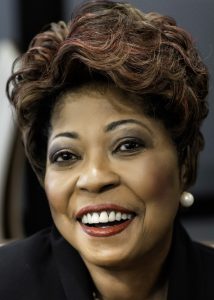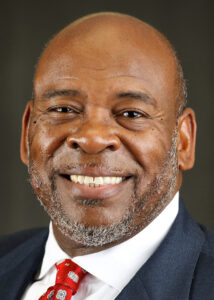The Committee on the Episcopacy of the Southeastern Jurisdiction of The United Methodist Church is recommending a reduction in the number of episcopal areas within the jurisdiction to 10 from the current 13 – a significant change in the SEJ’s organization and leadership structure. The committee also is recommending that no episcopal elections be held during this year’s SEJ Conference.
Delegates to the 2024 SEJ Conference, who are scheduled to meet July 10-12 in Lake Junaluska, North Carolina, must approve both recommendations before they can go into effect.
The SEJ Committee on the Episcopacy and the SEJ College of Bishops – which also has endorsed the recommendations – met January 3-4 in Charleston. They discussed and acted on a report on episcopal leadership and episcopal area alignment, receiving input from representatives of each annual conference and each bishop about the future needs for episcopal leadership in the SEJ.
The recommendation not to have episcopal elections in 2024 “is a prayerful response to the impact of disaffiliations in our areas,” the committee said in a letter to SEJ delegates dated Jan. 8.
The Committee on the Episcopacy is composed of two General Conference delegates from each annual conference in the jurisdiction – typically the first-elected lay delegate and the first-elected clergy delegate. Its responsibilities, as spelled out in The Book of Discipline, are to “review the work of the bishops, pass on their character and official administration, and report to the jurisdictional conference its findings for such action as the conference may deem appropriate;” and to recommend assignments of bishops to their respective areas.
South Carolina’s representatives on the committee are Jackie Jenkins, the first-elected lay delegate to General Conference and a member of St. Mark UMC in St. George; and the Rev. Ken Nelson, the first-elected clergy delegate to General Conference and superintendent of the Orangeburg District.
“These recommendations represent our best thinking about how we can move forward in this particular season of our jurisdictional life together,” Rev. Nelson said. “In recommending that we not elect any bishops this year, we acknowledge the fluidity in many of our local churches and annual conferences. And shifting to 10 episcopal areas would enable us to better align ourselves with God’s mission of redeeming and transforming the whole world.”
Jenkins, who also serves as head of the South Carolina delegation, said that being a part of Holy Conferencing and the collaborative work was “quite a growing experience” and “equally gratifying, knowing that we were doing God’s work.”
Bishop L. Jonathan Holston said the South Carolina Conference was honored to host this group of lay and clergy leaders in Charleston.
“I greatly appreciate the members of the Committee on the Episcopacy for their prayerful consideration of our next steps together across the Southeastern Jurisdiction of The United Methodist Church,” he said. “I am especially grateful for the faithfulness they have exhibited during our consultations on this and other matters as we prepare for the upcoming General Conference, Jurisdictional Conference and our individual Annual Conferences.”
An episcopal area in The United Methodist Church is presided over by a resident bishop and can include one or more annual conferences. For example, Bishop Holston is the resident bishop of the Columbia Area, which comprises only the South Carolina Conference, while Bishop Leonard Fairley is the resident bishop of the Louisville Area, which includes both the Kentucky Conference and the Central Appalachian Missionary Conference.
Currently, 11 resident bishops are assigned within the Southeastern Jurisdiction. Bishop Bill McAlilly, resident bishop of the Nashville Area, which includes the Tennessee-Western Kentucky Conference, will retire under mandatory retirement, effective August 31. That will leave 10 active bishops available for assignment within the Southeastern Jurisdiction.
“After detailed analysis, robust discussion, prayer and discernment,” the Committee on the Episcopacy’s letter reads, the committee recommends the following 10 episcopal areas for the 2024-2028 quadrennium (to be effective September 1, 2024, if SEJ delegates approve):
- Alabama-West Florida/North Alabama/South Georgia Area (currently the Alabama-West Florida Area, the Birmingham Area and the South Georgia Area)
- Central Appalachian Missionary/Holston/Kentucky Area (currently the Holston Area and the Louisville Area)
- Florida Area
- Mississippi Area
- North Carolina Area (currently the Raleigh Area)
- North Georgia Area
- South Carolina Area (currently the Columbia Area)
- Tennessee-Western Kentucky Area (currently the Nashville Area)
- Virginia Area (currently the Richmond Area)
- Western North Carolina Area (currently the Charlotte Area)
“We know that these recommendations will require additional conversation among delegates so that delegates can be prepared to vote on them in July,” the committee said in its letter. “We have asked heads of delegations to work with the SEJ Committee on the Episcopacy on providing resources related to these recommendations.
“Additionally, we recognize that every jurisdiction within The United Methodist Church is having similar conversations, and we commit to continued collaboration as we journey together into God’s preferred future for our Connection. We strongly encourage delegates to keep these recommendations in prayer as we prepare to gather for our General Conference in April and for our Jurisdictional Conference in July.”
Rev. Nelson and others see the recommendations as a step forward from years of uncertainty into a future with hope.
“It is a fact: We are not what we used to be, but in God’s grace, we are not yet what we shall be,” he said. “We remain a people of hope. We believe that the Southeastern Jurisdiction remains fertile soil for making disciples of Jesus Christ and that God is not done with us yet.”




